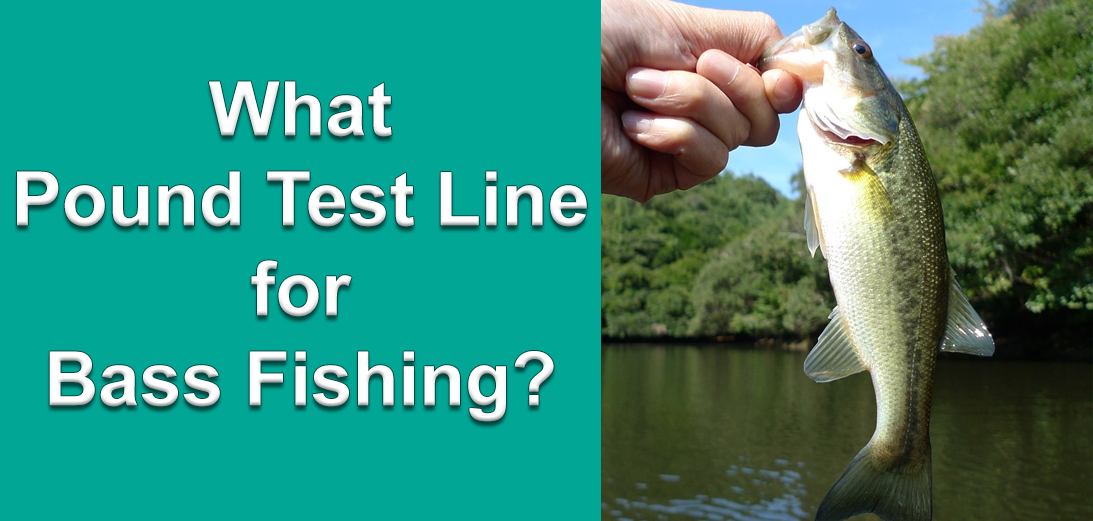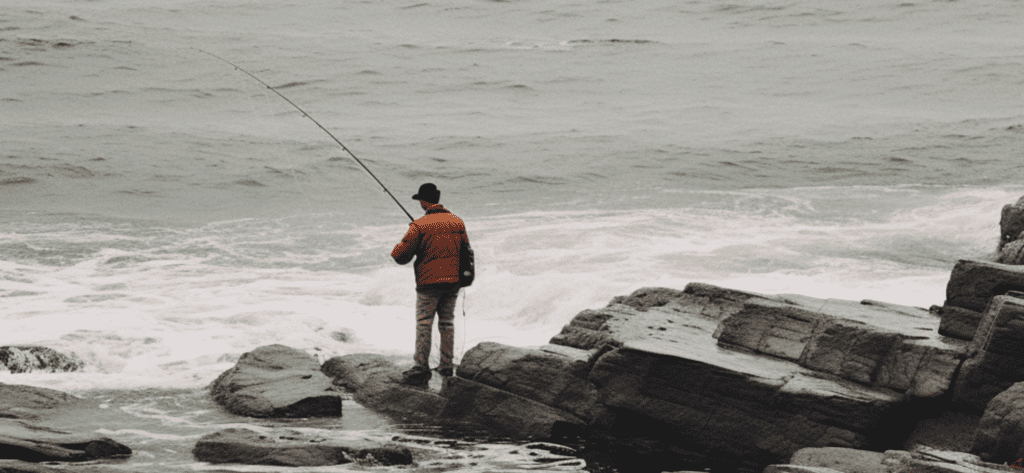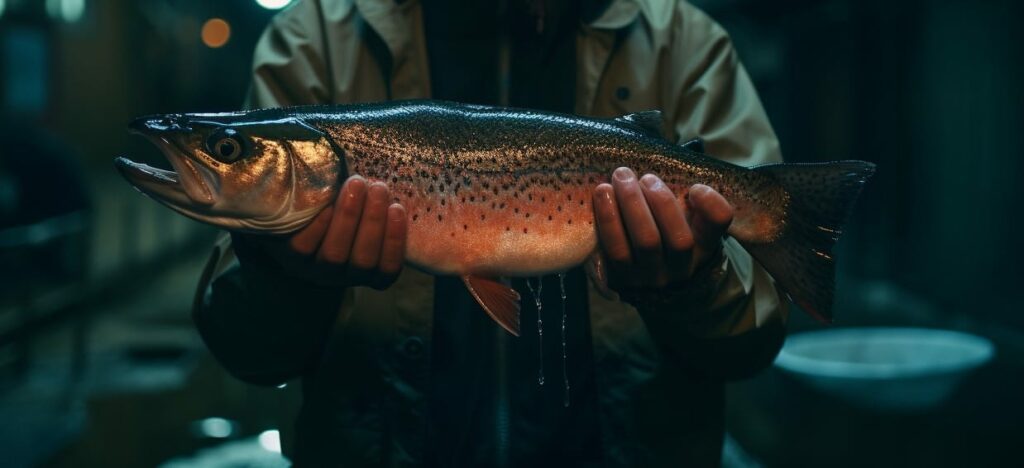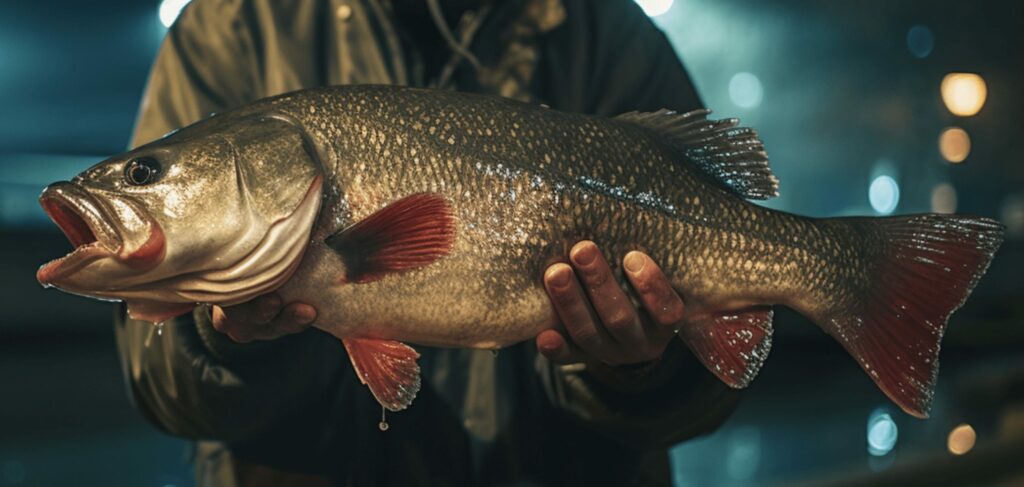There’s a lot of confusion regarding bass fishing.
“What pound test line for bass fishing is best?“, “What is best for bass fishing baitcasters, or spinning reels?” are one of the many questions beginner fishers ask themselves when it comes to fishing bass.
In this article, I’m gonna answer what pound test line I recommend for bass fishing. But first, let’s start with all the fishing lines available.
Types of Fishing Lines for Bass Fishing

Before diving into what pound test line is best for bass fishing, you must learn what fishing lines are out there so you know what will be best for you.
The fishing line is very important regarding the success you’ll have for bass fishing as it determines:
- The feel you’ll have when holding the fishing rod
- Whether if the fishing line is going to float or not
- The visibility of the line underwater
- The stretch of the line
- The resistance of the line
All these are key areas of fishing for bass. So… let’s begin.
Monofilament
By far the most popular fishing line, Monofilament is known for:
- Floating better
- Being stretchy
Is Monofilament Good for Bass Fishing?
Yes, Monofilament is perfect for fishing bass in topwater.
As it floats it won’t bring down the bait when fishing in these waters.
Also, due to its stretch, it gives the bass a little more time to get hooked to the bait before the line starts to move. With other lines, you run the risk of losing the fish.
The stretch is also perfect for keeping the line from breaking when you’re fighting with the bass. And, it’s cheaper, so it’s a great alternative for fishermen on a budget.
Fluorocarbon
Fluorocarbon too has its own characteristics, such as:
- Invisibility underwater as it has the same refractive qualities that water has
- Lack of stretch, which gives the lines a better “hook set” when jerking it
- It sinks because of its density which makes it perfect for crank baiting as you can bring it down where you want it to be
- More sensitive to subtle bites
- It has abrasion-resistant qualities which makes it perfect for fishing in tougher conditions
Is Fluorocarbon Good for Bass Fishing?
Yes. Due to its versatility, Fluorocarbon is perfect for a variety of situations for bass fishing.
I find Fluorocarbon great for bass fishing due to its sensitivity as it allows the fishermen to sense subtle bass bites. Also, I love its lack of stretch which gives you even more control when jerking the line once the bass is hooked to the bait.
Last but not least, Fluorocarbon is perfect for situations where visibility might be an issue, like when bass fishing with texas rigs and plastic worms, and for finesse bass fishing in clearwater. Given that Fluorocarbon has the same refractive qualities as water it makes it almost invisible underwater, which is perfect for these tricky situations.
Braid Line
The braided line has risen in popularity lately mainly due to its amazing features, such as:
- Lack of stretch (it doesn’t stretch at all) making it very castable
- Very abrasion resistant
- Highly sensitive to bites
Is Braid Good for Bass Fishing?
There’s definitely a place for bass fishing with braid line.
In fact, I think it’s perfect for fishing bass in vegetation (i.e. weeds) and for flipping and pitching in heavy cover due to its solid abrasion resistance and lack of stretch. Both of these attributes make braid perfect to fish with big hooks (i.e. jigs) as the line won’t break.
In fact, I tend to use a 50-pound braid to make thick hooks go through the vegetation.
What Pound Test Line for Fishing Bass?
So, I’ve already explained why monofilament, fluorocarbon, and braid lines are all convenient for bass fishing in specific situations.
Now, what pound test line should we choose for catching bass?
Well, first, let’s explain what a line’s pound test is. The line pound test refers to the number of pounds of pressure the fishing line can withstand before breaking. For example, a 50-pound braided test line will be able to handle up to 50 lbs of force before breaking. Thus, the bigger and stronger the fish, the heavier pound test line you’ll need.
For bass fishing, the rule is that you’ll need a line in the 10 lb to 17 lb test range. If you’re a beginner, I’d tell you to go with a fluorocarbon 17 lb test line as it’s the easiest to use in most cases.
However, if you feel comfortable going for other lines with other pound test ratings, then you can comfortably go for it (as long as you stay in the range). It’s up to you.





